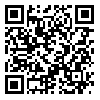
International Journal of Industrial Engineering & Production Management
Iran University of Science and Technology
Thu, May 22, 2025
[Archive]
Volume 22, Issue 4 (IJIEPM 2012)
2012, 22(4): 0-0 |
Back to browse issues page
Download citation:
BibTeX | RIS | EndNote | Medlars | ProCite | Reference Manager | RefWorks
Send citation to:



BibTeX | RIS | EndNote | Medlars | ProCite | Reference Manager | RefWorks
Send citation to:
Increasing KMS Implementation Efficiency Through Appropriate IT (Case Study: Iran Khodro Company). Journal title 2012; 22 (4)
URL: http://ijiepm.iust.ac.ir/article-1-810-en.html
URL: http://ijiepm.iust.ac.ir/article-1-810-en.html
Abstract: (24479 Views)
Due to the rapid development of knowledge and information technology (IT), business environments have become much more complicated. In order to cope with ensuing complications, enterprises ought to incessantly innovate otherwise, it will be very difficult for them to survive in the marketplace. Hence, IT can help a company to gain a competitive advantage. In addition, many studies have argued that business value comes mainly from intangible assets, such as knowledge. Thus, knowledge workers will be able to replace clerical workers as the new mainstream of manpower resources, a field in which the development of IT is the major force for change in knowledge management system (KMS). Therefore, based on the proposed definition of the six gaps in KMS by Tseng, this study explores the role and effect of IT in the implementation of KMS moreover, relationships between KMS and IT are analyzed and demonstrated by means of the literature reviews, expert interviews and questionnaire analyses. Finally according to these gaps and mentioned IT tools for covering them, new conceptual model is proposed. Based on proposed model and statistical analysis situation of each gap in the company had been assessed and discussed how to enhance the effectiveness and efficiency of implementing KMS through appropriate IT.
Type of Study: Research |
Subject:
Other related Industrial and production reserach subjects in which has direct relation to the state-of-the art of the IE
Received: 2012/03/14 | Published: 2012/02/15
Received: 2012/03/14 | Published: 2012/02/15
| Rights and permissions | |
 | This work is licensed under a Creative Commons Attribution-NonCommercial 4.0 International License. |


